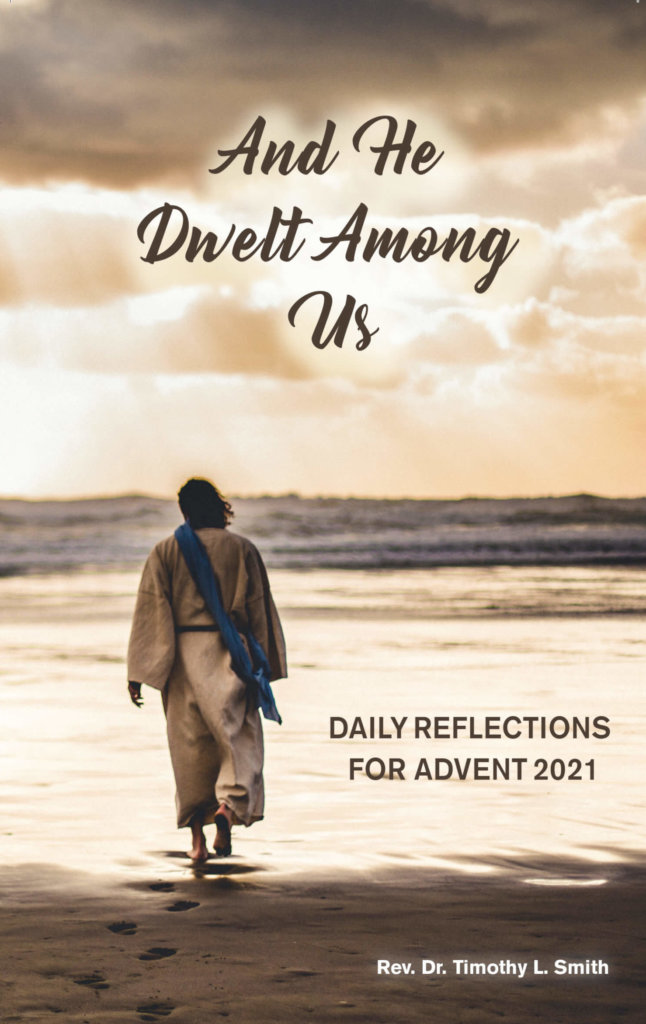And the Word was made flesh, and dwelt among us, and we beheld his glory, the glory as of the only begotten of the Father, full of grace and truth.
John 1:14
It all happened in the year that Augustus was emperor in Rome, Quirinius was governor in Syria, Herod was king in Judea, and during the time of Rome’s first registration that, “the Word became flesh and dwelt among us” (John 1:14). It was at this particular time and place that God stooped to take on our humanity, sinking Himself deep into our suffering and bearing our pain. Out of an overflow of boundless love and self-giving, God went from Infinity to infant, from Creator to the created. This is the astonishing good news we celebrate at Christmas: the Eternal One laying aside glory to take up our cause in becoming one with us.
World religions spin tales of gods and avatars taking human form. Hindu, Greek, and Roman mythologies are filled with them. But the story of Christmas is very different, as God does not come to us merely appearing human; He really does make Himself human. If you had hit Jesus, He would have bruised, if you cut Him, He would have bled, and if you rejected Him, He would have grieved. He became like us in every way except sin. Jesus grew tired, got hungry, felt pain, was agitated and died a slow and agonizing death.
No human experience was ever foreign to Jesus as “He took our nature, lived our life, endured our temptations, experienced our sorrows, felt our hurts, bore our sins and died our death.” (John Stott, The Contemporary Christian) God could not help Himself, He had to do this, because He loves us so much. At that first Christmas “God revealed that He loves us more than He loves Himself.” (Thomas Torrance, The Christian Doctrine of God: One Being, Three Persons) He proved that He would rather die than to live without us. It was for us that “he emptied himself” (Philippians 2:7), so “that we through his poverty might be made rich” (2 Corinthians 9:8).
It is the purpose of this Advent devotional to explore the glorious mystery of the Incarnation, or God becoming one with us. The word “Incarnation” is not found in the Bible but is derived from the Latin in and caro (flesh), meaning, “being made flesh”, or “take on a body.” The word is based on the Latin translation of John 1:14, “the Word became flesh [caro] and dwelt among us.”
The Nicene Creed sought to grapple with and express the profound mystery we will explore in coming days: “For us and for our salvation God came down from heaven; He became incarnate by the Holy Spirit and the virgin Mary, and was made human.” Concerning our Lord’s incarnation, the apostle Paul had to admit: “the mystery of our religion is great: He was revealed in the flesh.” Let us never get used to the wonder of saying: “He was revealed in the flesh!”
The tiny Baby in a manger, or the Man suspended helpless from a cross, is fully God and fully human. He is not 50% God and 50% human: He is 100% God and 100% human! The High King of Heaven took on what He was not, without losing what He was. Thus, in awed reverence, Christians have long called Jesus the Theanathropos, the “God-Man”. Let’s explore what this means for us, and let us worship Him!
ABOUT THIS DAILY DEVOTIONAL
PRAYER: We begin each day of this devotional with prayer. We will need the guidance and illumination of the Holy Spirit as we open Scripture to learn more about Jesus and the wonder of God becoming like us so that we might be like Him.
REFLECTION: Prayer is followed by a brief passage of Holy Scripture and reflecting on the Son of God becoming the Son of Man, to make us sons and daughters of God.
WORSHIP: The bottom line of this devotional is, simply, worship. The devotional will conclude each day with a suggested way for you to worship.
“Oh! Wondrous humility of my God; a deserted stable, mean swaddling-clothes, incommodious manger, lowly birth, teach me to humble myself: Adorable Jesus, Divinity hid in flesh like mine, gracious Savior instruct me, bring down my mind, reform my heart, cure my pride, give me humility, and with it Thy grace, Thy love, and Thy glory.”
Jean Baptiste É Avrillon, A Guide for Passing Advent Holily


